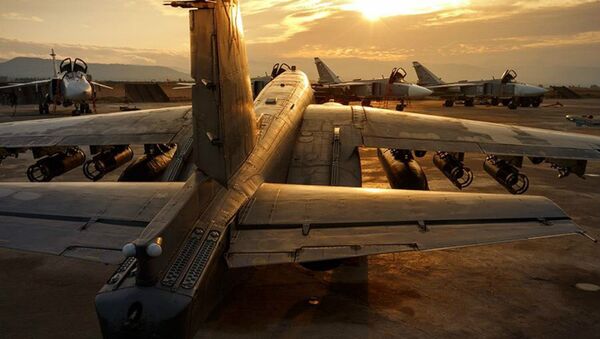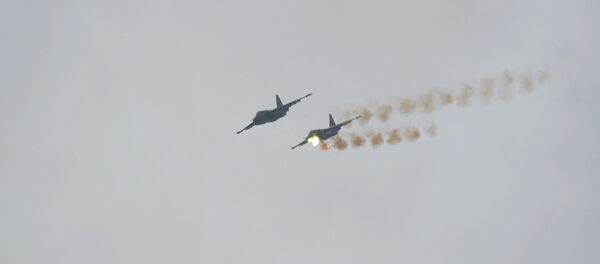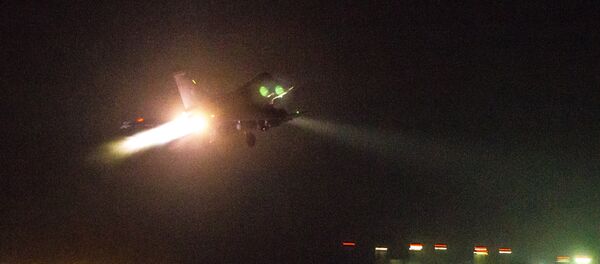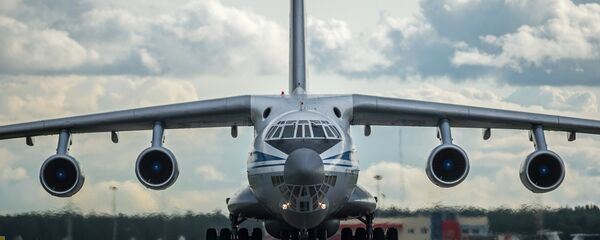The Syrian government "is back on the winning track, thanks to Russian aviation," writes Die Welt correspondent Alfred Hackensberger.
"From the outbreak of the Syrian conflict, [such a reversal] was previously unthinkable." Meanwhile, "US and Saudi arms shipments have proven ineffective."
Speaking at a press conference before his departure from Geneva, Alloush told journalists that "we will come back when things change on the ground according to our expectations."
"But the question arises," Hackensberger noted, "as to whether he will ever come back again in a comparatively strong position, because on Wednesday night, the Syrian Army, with the help of Russian aviation, broke through two blockaded Shiite settlements. It is a military success which could have important consequences for the rest of the war."
The towns – Nuble and Zahraa, are located about 20 kilometers from Aleppo in the country's north. "And with their breakthrough, government forces cut the last supply route the rebels had –a route stretching from Aleppo to Bab al-Salama on the Turkish border."
"And it's not just about food supplies, but also oil and gas for the northern Syrian city, and the entire province of Idlib," the journalist emphasized.
Last year, the Syrian government lost key areas in Idlib province to a rebel coalition consisting of Jaish al-Fatah and al-Nusra Front (al-Qaeda's Syrian franchise), threatening its position along the Mediterranean coast. But with the help of Russian aviation, the rebels were pushed back, "and now the rebel militias in Idlib are threatened by a fuel shortage."
"The fuel," the journalist recalls, "is not only essential for military vehicles. Most of the electricity generated in the area depends on generators." Without it, it will not be possible to bake bread, supply households with electricity, or communicate with the outside world via satellite internet.
Earlier, Jaish al-Fatah had purchased its fuel supplies from their enemies the Islamic State (Daesh), which controls the majority of Syrian oil wells in the country's east. "In June, the two groups had reached a new agreement: that the path should be kept open for traders traveling back and forth [between Daesh and rebel-controlled territory]. The arrangement was mutual – Jaish al-Fatah received fuel, and Daesh got money or food in exchange."
Ultimately, Hackensberger writes, the Syrian Army, supported by Russian airstrikes, is advancing, something which had long been deemed unthinkable in the course of the country's brutal five-year-long war.
"Russia's intervention could lead to a government victory or, at the very least, to a very good position ahead of new negotiations with the opposition." Meanwhile, "the rebels, even with arms deliveries from their allies – the US, Qatar and Saudi Arabia," are paralyzed, "unable to turn the tide. Russia makes it possible for the Syrian regime to return to the winning track, something which, since the beginning of the Syrian [civil war] had been deemed unthinkable."





